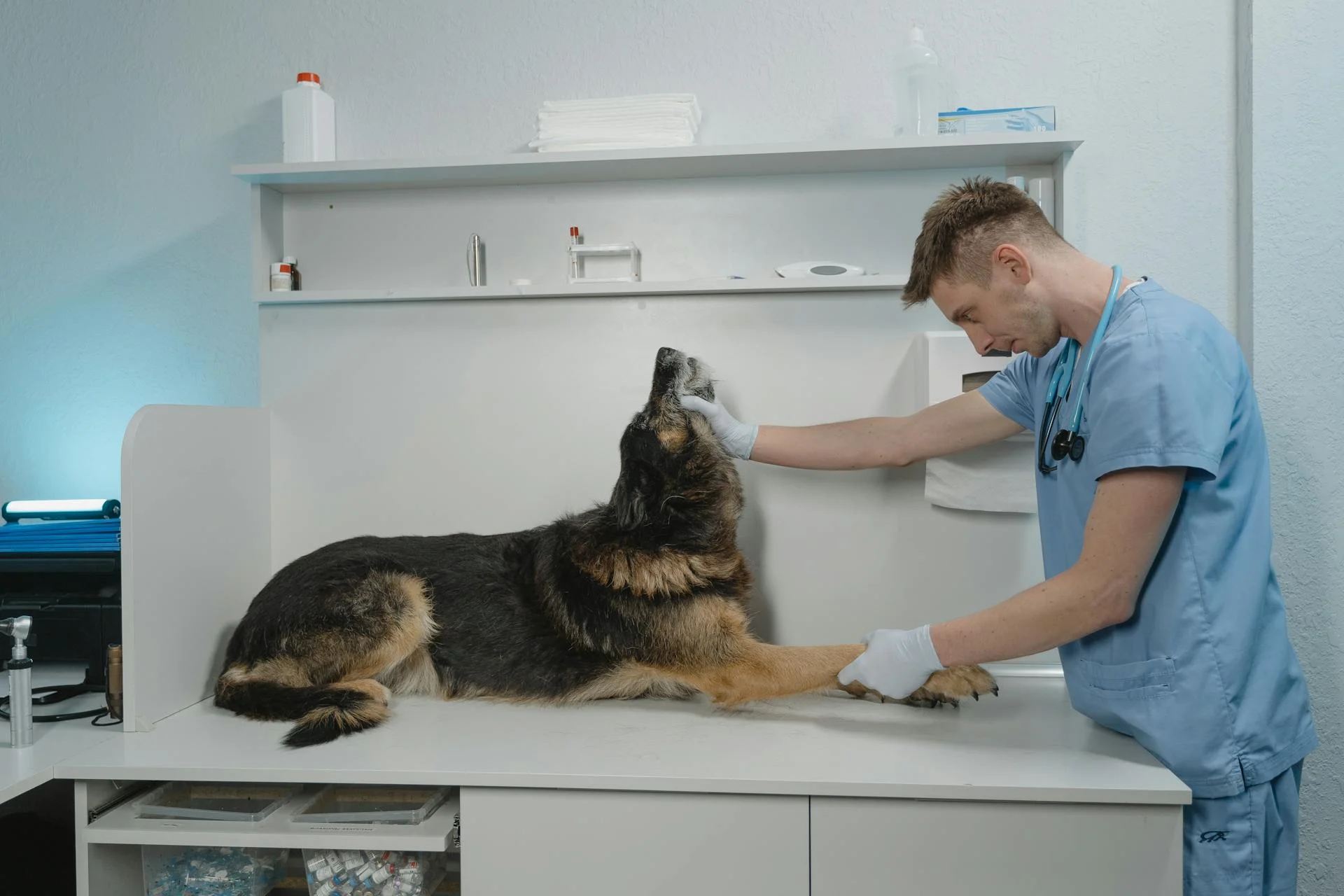
Yorkshire Terriers are prone to hypoglycemia, a condition that occurs when their blood sugar levels drop too low.
Hypoglycemia can happen at any age, but it's most common in puppies under 4 months old.
Yorkies have a small stomach and can easily overexert themselves, leading to a rapid drop in blood sugar.
This can happen after exercise, especially if they haven't eaten recently.
A Yorkie's tiny size means their glucose stores are quickly depleted, making them more susceptible to hypoglycemia.
Feeding a high-carbohydrate diet can help prevent hypoglycemia, but it's essential to do so under the guidance of a veterinarian.
Monitoring your Yorkie's food intake and exercise levels is crucial to preventing hypoglycemia episodes.
What You Need to Know About Yorkies
Yorkies are adorable, but they do come with some special needs. Their small body mass means they have limited glucose reserves.
Their high metabolism can quickly deplete their glucose levels, making them prone to hypoglycemia. This is especially true if they miss a meal or two.
Yorkie puppies are at an even higher risk due to their rapid growth and energy expenditure. This is why it's crucial to monitor their food intake and ensure they're eating regularly.
To keep your Yorkie safe, it's essential to know the signs of hypoglycemia, such as shakiness, seizures, and lethargy. If you suspect your Yorkie is experiencing hypoglycemia, seek veterinary attention immediately.
Related reading: Yorkie vs Yorkshire Terrier
Yorkie Health Prevention
Yorkshire Terriers are particularly susceptible to hypoglycemia due to their small size and high metabolism. This means they have limited glucose reserves and can quickly deplete their energy levels.
Feeding your Yorkie frequently throughout the day is crucial to maintaining stable blood sugar levels. This means providing 3-4 meals a day, rather than just one or two big meals.
High-quality food is essential for Yorkies, and you should choose a food that is rich in proteins, fats, and essential nutrients. Avoid dog food that is high in additives, artificial colors, and flavors.
Supplements like Nutri-Cal can be added to your Yorkie's diet to help maintain stable blood sugar levels. This is especially important for Yorkie puppies, who are at a higher risk of hypoglycemia due to their rapid growth and energy expenditure.
Regularly checking your Yorkie's weight is also important to ensure they are growing at a healthy rate. This can help you catch any potential issues early on.
Here are some common causes of hypoglycemia in Yorkies:
- Inadequate Nutrition: Not feeding your Yorkie frequently enough or providing food that lacks essential nutrients.
- Stress: Emotional or physical stress can trigger hypoglycemia.
- Illness: Underlying health conditions, such as liver disease or infections, can contribute to low blood sugar levels.
- Excessive Exercise: Overexertion without adequate food intake can deplete glucose reserves.
- Environmental Factors: Cold temperatures can increase energy demands, leading to hypoglycemia if not countered with sufficient nutrition.
By following these prevention tips and being aware of the common causes of hypoglycemia, you can help keep your Yorkie safe and healthy.
Symptoms and Signs
Recognizing the symptoms of hypoglycemia in Yorkshire Terriers is crucial for early intervention. Hypoglycemia can escalate quickly, so it's essential to be aware of the signs.
Lethargy is a classic sign of low blood sugar and hypoglycemia. If your Yorkie doesn't want to play and just wants to lay down for longer than ordinary amounts of time, start looking for other signs.
White gums are a sign of low blood sugar. If your Yorkie's gums are gray, it's a sign that they're in the process of dying, and you need to get to the vet as soon as possible.
Tremors or shaking in Yorkies can be a sign of hypoglycemia. Involuntary muscle movements, often starting with the face or legs, can be a warning sign.
Weakness, difficulty standing, walking, or general weakness, can also be symptoms of hypoglycemia. Disorientation, confusion, lack of coordination, or stumbling can also occur.
Here are the symptoms of hypoglycemia in Yorkies:
- Lethargy
- Weakness
- Tremors or shaking
- Seizures
- Disorientation
- Unconsciousness
It's essential to note that these symptoms can range from mild to severe, and immediate action is required if you observe any of these symptoms in your Yorkie.
Diet and Treatment
Diet plays a crucial role in preventing hypoglycemia in Yorkshire Terriers. To maintain stable blood sugar levels, provide small, frequent meals throughout the day.
High-quality dog food rich in proteins, fats, and essential nutrients is essential. Avoid food with additives, artificial colors, and flavors, as they can worsen the condition. Pregnant Yorkies, in particular, need high-protein diets to keep blood sugar at normal ranges.
A fresh viewpoint: Yorkshire Terrier Pooping Blood
Consider adding supplements like Nutri-Cal to your puppy's diet to provide an extra boost of calories. Regularly check your puppy's weight to ensure they are growing at a healthy rate.
Here are some tips to keep in mind:
- Frequent feeding: 4-6 small meals per day
- High-quality food: rich in proteins, fats, and essential nutrients
- Supplements: Nutri-Cal or other high-calorie dietary supplements
- Monitor weight: regular check-ups to ensure healthy growth
Diet and Nutrition
A balanced diet is crucial for your Yorkie's overall health, so make sure to provide a diet rich in protein, fats, and carbohydrates.
To ensure your Yorkie gets the nutrients they need, feed them small meals every 3-4 hours, especially during periods of high activity or stress.
It's also essential to keep healthy snacks on hand for quick energy boosts.
Human food can disrupt your Yorkie's nutritional balance and lead to hypoglycemia, so it's best to avoid giving them human food altogether.
Here are some healthy snack options for your Yorkie:
- Carrots
- Green beans
- Apple slices
- Pumpkin
Dogs and Puppies Treatment
If you have a Yorkie puppy, it's essential to feed them frequently to prevent hypoglycemia. Hypoglycemia is particularly common in Yorkie puppies due to their high energy needs and limited ability to store glucose.
Yorkie puppies require small meals throughout the day to maintain stable blood sugar levels. This is especially crucial during the first few months of their life.
In some cases, your veterinarian may prescribe medication to help regulate blood sugar levels. Always follow your veterinarian’s instructions and dosage recommendations.
Recommended read: Biewer Yorkshire Terrier Puppies
Monitoring
Monitoring your Yorkie's health is crucial when it comes to managing hypoglycemia. Regular Blood Tests are essential to monitor glucose levels and overall health.
You should take your Yorkie to a blood test once a month if he suffers from hypoglycemia. This will help you stay on top of his condition and make any necessary adjustments to his care.
Keeping a Diary is also a great way to track your Yorkie's eating habits, activity levels, and any hypoglycemic episodes. This will help you identify patterns and triggers, which is key to preventing future episodes.
Here are some key things to include in your diary:
- Eating habits: Note the times and amounts of food your Yorkie eats each day.
- Activity levels: Record your Yorkie's activity levels, including exercise and playtime.
- Hypoglycemic episodes: Document any episodes of hypoglycemia, including the time, symptoms, and any treatment given.
Education and Preparedness
To effectively manage hypoglycemia in your Yorkshire Terrier, it's essential to educate yourself about the condition and its effects. Stay informed about hypoglycemia and how it affects Yorkies.
Having an emergency kit on hand can be a lifesaver. Keep a kit with glucose gel, honey, or Karo syrup, and make sure to include contact information for your veterinarian.
Knowing the warning signs of hypoglycemia is crucial. Look out for symptoms like shakiness, stumbling, and seizures.
In case of an emergency, it's essential to act quickly. Use the glucose gel, honey, or Karo syrup from your emergency kit to help raise your Yorkie's blood sugar levels.
A well-stocked emergency kit can make all the difference. Here are some essential items to include:
- Glucose gel
- Honey
- Karo syrup
- Contact information for your veterinarian
Frequently Asked Questions
How long does it take for a dog to recover from hypoglycemia?
Recovery time from hypoglycemia in dogs varies depending on the severity and duration of low blood sugar levels. The sooner and more effectively glucose is replenished, the faster the dog will recover.
Sources
- https://yorkies-gram.com/hypoglycemia-in-yorkies-understanding-prevention/
- https://www.dummies.com/article/home-auto-hobbies/pets/dogs/breeds/terriers/recognizing-common-health-issues-in-yorkshire-terriers-195948/
- https://www.redriverkennels.com/hypoglycemia
- http://www.yorkiesunited.com/hypoglycemia.html
- https://designeryorkies.com/hypoglycemia-in-small-dogs-yorkie-maltese-shih-tzu-chihuahua/
Featured Images: pexels.com


